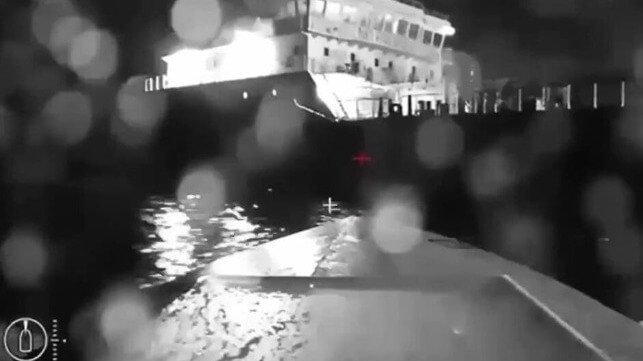New Enforcement Alert Targets Tankers Avoiding Russian Oil Price Cap

The Price Cap Coalition which includes the EU, Australia, the UK, and the U.S. issued a “Compliance and Enforcement Alert” designed to call attention to the key evasion methods being used by Russia to evade the oil price cap imposed in December 2022. It is seen as the latest step in efforts to crack down on evasion and increase enforcement specifically targeting the shadow fleet and other tankers outside the coalition nations that continue to support the Russian trade.
The release of the alert came just days after a British Parliamentary committee said what everyone has known that there is “growing evidence,” of Russia’s evasion of the price cap. The lawmakers called for more “decisive action,” by the UK and its allies saying they were “concerned at the growing evidence “of Russia’s evasion tactics.
The UK report said that Russia was using the shadow fleet and buying old tankers through third parties as it avoided the price cap and reduced the participation of Western tankers in the oil trade. Detailing the findings, the Agence France Presse cited data that for example showed 179 shadow fleet tankers had loaded Russian oil in November 2023.
The new alert calls attention to the evasion methods citing false documents, opaque shipping, efforts at changing flags, and voyage irregularities all within the shadow fleet. The alert warns that industry stakeholders involved in the Russian oil and oil products trade should consider the details and take steps such as developing trusted providers. Industry stakeholders are instructed to pay “particular attention to evasion types.”
“Evasion methods outlined in this alert could be seen separately or be interlinked and part of a broader set of illicit activity,” the alert cautions. They outline the use of false documents and entities with complex and irregular structures instructing enhanced due diligence.
Saying that there is ample evidence that Russia is using the shadow fleet to transport oil and products, they warn of signs such as ships shifting away from industry standard classification societies. They also recommend carefully checking insurance instructing to make sure it covers the entire voyage, is issued by “legitimate insurance providers,” and is sufficient coverage for international requirements.
“No single vessel behavior should be viewed in isolation,” the alert warns.
It does not threaten any specific actions but the U.S. since December has moved on several occasions to block tankers and ship managers that it believes are regularly violating the price cap. There have been reports that some Greek operators abandon the Russian trade in fear of sanctions with some blocked tankers appearing to have been idled. India was reported to be holding some of the blocked tankers offshore delaying deliveries of Russian oil.

that matters most
Get the latest maritime news delivered to your inbox daily.
In addition to the specific sanctions, the alert highlights that other enforcement actions have been implemented. They note that some members including the European Union introduced measures to more closely monitor the sale of tankers to third countries in an effort to prevent them from being used in the trade.
The Price Cap Coalition takes a proactive compliance and enforcement approach, The UK writes in issuing its alert. They report it includes supporting governments and industry stakeholders to improve their compliance with the price cap, identifying suspected evasion and breaches of the cap, and taking robust enforcement action where necessary.
